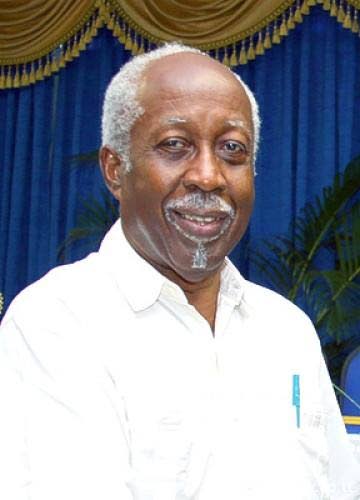The citizen and the Constitution

REGINALD DUMAS
Pt II
THE OCTOBER 2014 judgment by our Court of Appeal upholding what I considered my right as a citizen to seek, in the public interest, review of what I perceived as unlawful constitutional action didn’t sit well with the Attorney General (AG) of the day. He sought, and was granted, leave to approach the Privy Council (PC).
Unsurprisingly, he raised the matter of my standing before the court as a citizen, not as a directly affected person (section 14(1) of the Constitution). He went on: “The issue in this appeal goes far beyond mere matters of procedure but is encrusted with and raises the substantive legal question of the ability of a citizen to seek an interpretation of the Constitution simpliciter when he alleges no breach of any of his constitutional right (sic). This is a fundamental question for which guidance is sought from the highest court of the land. It imports a critical and fundamental extension of the rationale for accessing the Constitution.”
Then, not content with merely seeking guidance, he asserted that “(t)he Court of Appeal’s ruling would amount to a significant and unwarranted extension of the law for citizens to bring and maintain (an) action for the interpretation of the Constitution…” The meaning of “unwarranted” is “not justified.” Was the AG really saying that a citizen who justifiably felt that the Constitution had been, or was being, violated, shouldn’t have the right, except within the restricted scope – warranted, I imagine – of section 14(1), to file an interpretation action? And that silence from citizen and court alike would then be justified?
The government changed in 2015, and the new AG joined his immediate predecessor in opposing me. He even introduced two new arguments, to both of which the PC gave short shrift. One argument quoted from section 38(1) of the Constitution: “the President” (the correctness of two of whose appointments to the Police Service Commission (PSC) I was questioning) “shall not be answerable to any court for the performance of the functions of his office or for any act done by him in the performance of those functions.”
The PC’s response to this was that the “protection which the sub-section gives to the President does not prevent the courts from examining the validity of his acts.” This strikes me as very relevant to certain aspects of our present situation.
In May 2017 the PC ruled in my favour. It said I had been “(asserting) a right as a citizen (to seek) the assistance of the courts in the upholding of the Constitution.” It endorsed the assertion of such a right, and commended our Court of Appeal on its “impressive” 2014 judgment in the matter.
Our Law Association added its approval. It said: “(T)he CoA expanded access of the citizenry to the Supreme Court to challenge what they perceive to be violations of the non-human rights provisions of the Constitution…By permitting (such) access…to persons…whose primary concern is to act in the public interest, the CoA took a major step towards holding public officials accountable for the discharge of their public duties, no matter how high the office they may hold.” Those words too are relevant to our present situation.
(That reminds me. Section 122(1) of the Constitution says there “shall be a PSC…which shall consist of a chairman and four other members.” Shall, not may. And five people. Was the last PSC, which we’re told had only four members, properly constituted?)
I was naturally very pleased at the way things turned out in the end. But much, much more than my personal pleasure is involved here: the public interest is paramount. This is what I said in May 2017: “(The PC judgment) represented a victory for the people of Trinidad and Tobago…We spend too much time in this country looking for, and often inventing, personal motives to explain events and actions. Trinidad and Tobago would be a far better place if only we could constantly bear in mind that the welfare of the country is far more important than our petty sentiments and prejudices.”
What has changed? Our obsessions with political party, personality, race, geography (with which, for political and social reasons, race is often linked), religion, etc persist. The quality of discourse (I use the word “discourse” loosely), especially at the political level, has been collapsing into an odoriferous pit of crassness and bile. Finger-pointing and sneering have become art forms. Those seeking clarification of public policy announced without prior public discussion are damned as enemies. Rights are everywhere proclaimed; responsibilities don’t matter much. Good governance – consultation, co-operation, transparency, accountability, information, communication, ethics, effective management – fades into invisibility. Is all this the trumpeted example to our youth? Is this how we expect to make progress?


Comments
"The citizen and the Constitution"